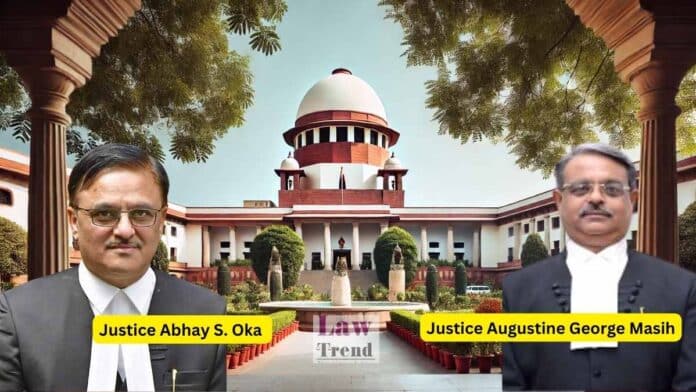The Supreme Court has clarified that the power under Section 319 of the Criminal Procedure Code (CrPC) to summon additional accused must be exercised with caution and only when a clear case is made out. In its judgment in Hetram @ Babli v. State of Rajasthan & Anr. (Criminal Appeal No. 4656 of 2024), the
To Read More Please Subscribe to VIP Membership for Unlimited Access to All the Articles, Download Available Copies of Judgments/Order, Acess to Central/State Bare Acts, Advertisement Free Content, Access to More than 4000 Legal Drafts( Readymade Editable Formats of Suits, Petitions, Writs, Legal Notices, Divorce Petitions, 138 Notices, Bail Applications etc.) in Hindi and English.




